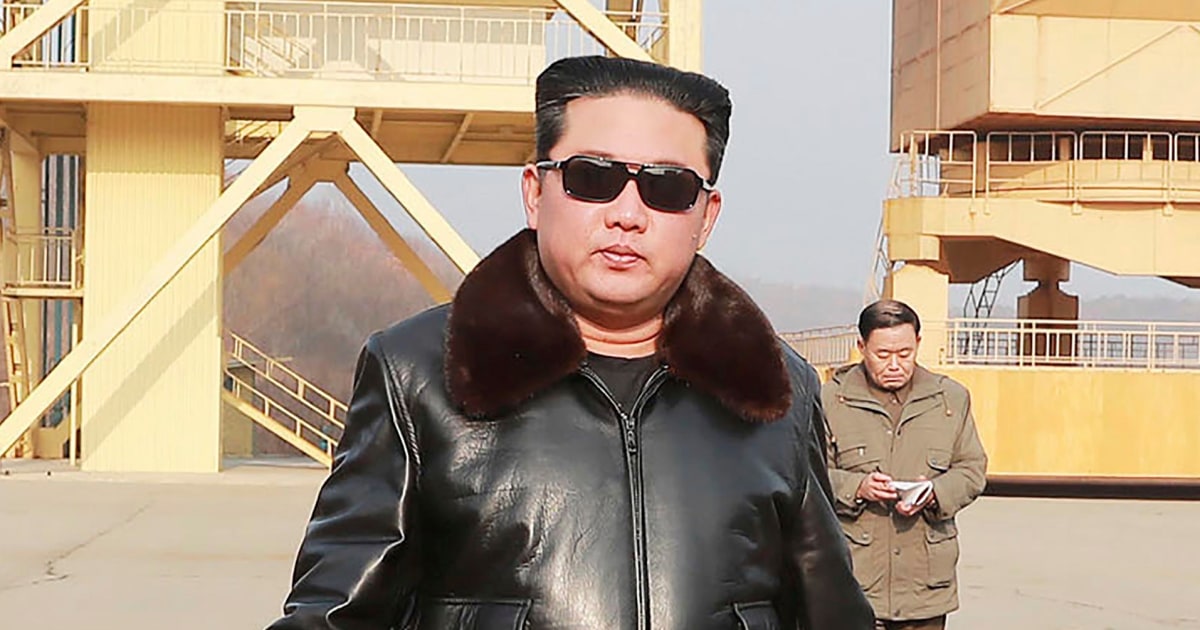TOKYO (AP) — North Korea notified neighboring Japan Monday that it plans to launch a satellite in the coming days, in what may be an attempt to put Pyongyang’s first military reconnaissance satellite into orbit.
Defense Minister Yasukazu Hamada said he had ordered the Japan Self-Defense Force to shoot down the satellite or the debris, if any entered Japanese territory.
Japan’s coast guard said the notice it received from North Korean waterways authorities said the launch window was from May 31 to June 11, and the launch could affect the waters of the Yellow Sea, the East China Sea and the eastern Luzon island of the Philippines.
The Coast Guard issued a safety advisory for ships that were in the area on those dates due to possible risks of falling debris. Japan’s coast guard coordinates and distributes maritime security information in East Asia, which is likely why it received the North Korean tip.
To launch a satellite into space, North Korea would have to use long-range missile technology prohibited by UN Security Council resolutions. Its previous launches of Earth observation satellites were seen as covert missile tests.
Japan’s Chief Cabinet Secretary Hirokazu Matsuno said the launch would violate UN resolutions and was a «threat to the peace and security of Japan, the region and the international community.»
Japan has already been on alert for falling missile debris from North Korean launches earlier this year and has deployed missile defense systems such as the PAC-3 surface-to-air and SM-3 ship-to-air interceptors in the southwestern Japan and in the east. china sea
Matsuno said it was possible for the satellite to enter or pass over islands in southwestern Japan, including Okinawa, where the United States has major military bases and thousands of troops.

South Korea warned on Monday that North Korea will face consequences if it goes ahead with its launch plan in violation of UN Security Council resolutions that prohibit the North from launching using ballistic technology.
«Our government strongly warns North Korea against a provocation that threatens peace in the region and urges it to withdraw its illegal launch plan immediately,» a ministry statement said. He said South Korea will cooperate with the international community to resolutely deal with any provocation from North Korea.
Earlier this month, North Korean state media reported that leader Kim Jong Un had inspected a completed military spy satellite at his country’s aerospace center and approved the satellite’s launch plan. The launch notice on Monday did not specify the type of satellite.
Last week, rival South Korea launched its first commercial satellite into space, likely to provide it with the technology and expertise to launch its first military spy satellite into orbit later this year and build more powerful missiles. Experts say Kim would want his country to launch a spy satellite before South Korea.
North Korea placed Earth-observing satellites into orbit in 2012 and 2016. Pyongyang does not notify neighboring countries in advance of its missile launches, but has issued warnings ahead of satellite launches.
While North Korea has demonstrated its ability to send a satellite into space, there are questions about the satellite’s capability. Foreign experts say previous satellites never transmitted images to North Korea, and analysts say the new device shown in state media seemed too small and crudely designed to support high-resolution images.
The spy satellites are among a variety of high-tech weapons systems that Kim has publicly promised to develop. Other weapons systems on his wish list include solid-propellant ICBMs, nuclear-powered submarines, hypersonic missiles and multiple warhead missiles.
North Korea’s satellite launch plan comes amid rising tensions on the Korean peninsula.

